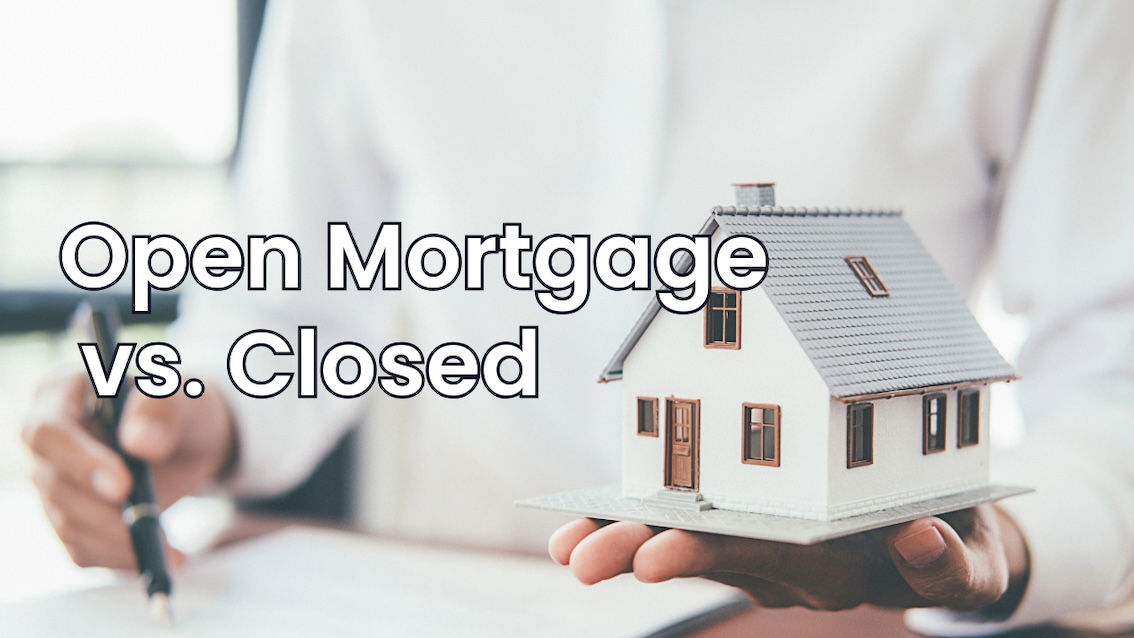When it comes to selecting a mortgage in Canada, one of the first decisions you’ll face is choosing between an open mortgage vs. closed mortgage. Each type offers distinct advantages and limitations, tailored to different financial situations and long-term goals. This comprehensive guide explores the pros and cons of open and closed mortgages, helping you navigate the path to making an informed decision that aligns with your homeownership and financial objectives.
What is an Open Mortgage?
An open mortgage offers flexibility, allowing you to pay off your mortgage in part or in full at any time without incurring penalties. This type of mortgage is ideal for those anticipating a large lump sum of money or planning to sell their property soon.
Pros of Open Mortgages
- Flexibility: You can make larger payments or pay off the entire mortgage without facing prepayment penalties. Closed mortgages offer pre-payment privileges as well, but they are usually limited to 10%-20% of the original mortgage amount.
- Short-term Solution: Ideal for borrowers planning to sell their home or expecting to pay off the mortgage quickly through an inheritance or a large sum of money.
Cons of Open Mortgages
- Higher Interest Rates: The trade-off for flexibility is typically a higher interest rate compared to closed mortgages.
- Limited Availability: Not all lenders offer open mortgages, and when they do, it might be at a significantly higher cost.
What is a Closed Mortgage?
Closed mortgages are the more common type, featuring lower interest rates compared to open mortgages, but with restrictions on the amount you can overpay on your mortgage principal.
Pros of Closed Mortgages
- Lower Interest Rates: Closed mortgages generally come with lower interest rates, making them more cost-effective over the long term.
- Predictability: Fixed payments make it easier to budget and plan for the future, providing financial stability.
Cons of Closed Mortgages
- Prepayment Limitations: There are limits to how much you can overpay on your mortgage. Exceeding these limits can result in penalties.
- Less Flexibility: Closed mortgages restrict your ability to pay off your mortgage early, locking you into a term that can range from 6 months to 10 years.
Making the Right Choice
Consider Your Financial Stability
If you expect your financial situation to change or anticipate coming into money that could pay off your mortgage, an open mortgage might be the right choice. It provides the flexibility to adapt to financial windfalls without penalty.
Long-term Goals
For those prioritizing long-term savings and stability, a closed mortgage often makes more sense. The lower interest rates and fixed payment schedules can help in achieving financial goals like debt reduction or saving for retirement.
Market Conditions
Keep an eye on interest rate trends. If rates are expected to decrease, an open mortgage could allow you to take advantage of lower rates sooner. Conversely, locking in a rate with a closed mortgage might be preferable in a rising interest rate environment.
Open Mortgage vs. Closed FAQ
Can I switch from an open to a closed mortgage or vice versa?
Yes, most lenders allow you to switch from an open to a closed mortgage, although fees may apply. Switching from closed to open is less common and might incur penalties.
Are there penalties for breaking a closed mortgage?
Yes, breaking a closed mortgage early usually results in penalties, which can be significant. It’s essential to understand these penalties before signing your mortgage agreement.
How do I know which mortgage type is right for me?
Consider your financial situation, future plans, and risk tolerance. Consulting with a mortgage broker can provide personalized advice based on your unique circumstances.
Conclusion
Choosing between an open and closed mortgage depends on your financial situation, future plans, and your tolerance for risk and flexibility. Open mortgages offer the freedom to pay off your loan on your terms but come at the cost of higher interest rates. Closed mortgages, on the other hand, provide lower rates and financial stability but limit your ability to make extra payments. By carefully considering the pros and cons of each, you can select a mortgage product that best suits your path to homeownership and financial wellbeing.
For more insights on the Canadian real estate market and finding the mortgage solution that’s right for you, let’s have a chat. I’m here to help you navigate this exciting journey!


